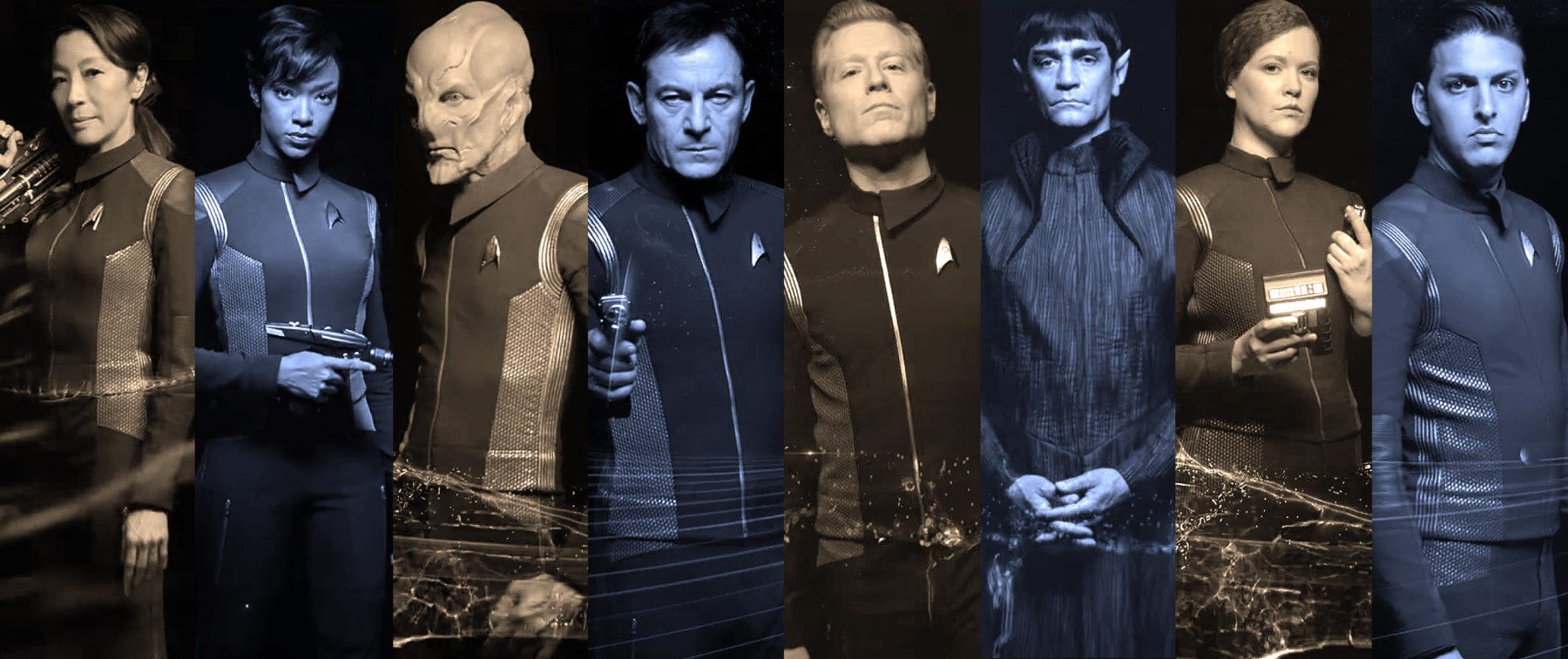Can Star Trek continue to boldly go in the age of Brexit and Trump?
Star Trek is a franchise that, from its very inception, offered not just an idealistic look to the future and what humanity could become, yet also functioned as a mirror of society at the time. For example, the Federation’s conflict with the Klingons in The Original Series echoed the Cold War, as did the resolution of that same conflict in The Undiscovered Country, released in 1991, when the Cold War finally came to an end. But what exactly can Star Trek offer in the age of Brexit and Trump, where satirical shows such as Saturday Night Live are experiencing some of the best ratings in years?
The show is now back on the small screen in form of Star Trek: Discovery, but its mirroring of the collective anxiety of the entire planet, with its dark themes and war-centric plot, may not be the right way to go. Should the show have gone down creator Gene Roddenberry’s original optimistic interpretation of humanity? The franchise has often toed the line between the mirroring of current events and optimism, yet Discovery is a show that has very little of the latter and perhaps too much of the former, at least based on the first three episodes. And this is the key problem I’m going to attempt to work through here, putting all other opinions of the show (and there are many, both good and bad) to the side.
It is arguable that a show such as Star Trek cannot function in the modern era
As already mentioned, the modern era is one full of anxiety, with the rise of extreme nationalism and ever-growing threat of nuclear war. And this, to me anyway, is the perfect opportunity for new Trek. The first show grew out of the Cold War, while subsequent shows tackled equally contemporary issues, be it the rise of financial Asia in The Next Generation with villains the Borg, the outbreak of religious conflict in the Middle East in Deep Space Nine or the horrific events of 9/11 with Enterprise. But, is this new Star Trek offering any insightful opinions, deep philosophical views or moral quandaries? It’s certainly attempting to, but the end result is becoming muddled. Yes, the show has a dark storyline centred around the outbreak of a potentially devastating war, yet the response has been lukewarm, especially in viewership. And while this almost certainly has more to do with the show’s home release on an exclusive streaming service, and we’re only a few weeks in, I can’t help but worry that Discovery can’t capitalise on what previous Star Trek has done.
But is this necessarily the writers fault? The modern era of social media means that, not only does everyone have an opinion, but that they can all share that opinion without having to listen to anyone else’s. And if they do listen to another opinion, particularly one presented in the media, they backlash. Social media has seen heavy criticism against actors, directors, musicians, writers, and even the art they produce, for merely voicing their opinion. It is arguable that a show such as Star Trek cannot function in the modern era, at least not how it used to, for fear of being labelled as too ‘preachy’ or even ‘social justice gone mad’.
Star Trek can still lead in the fight against prejudice in the modern era
Yet this does not mean that Star Trek cannot adapt to these new conditions. The casting of a black female lead in Discovery showcases what Star Trek has always been about, ever since Roddenberry tried to make a woman the first officer in the very first Original Series pilot episode, ‘The Cage’. Similar to this, the first openly gay Trek character (excluding the blink and you miss it moment with Sulu in Beyond) has made his debut in Discovery. This is all exciting stuff, and proves that Star Trek can still lead in the fight against prejudice in the modern era.
Yet can we learn anything from a modern Trek? It may still be able to try and offer complex moral issues, and pave the way in terms of diversity, yet presenting a simple, clear and coherent message may be too hard a task. No longer can the likes of William Shatner or Patrick Stewart make us sleep better at night, with the idea that the world will eventually come together in peace (no matter how hard Seth MacFarlane tries to with The Orville). Ultimately, we will likely never return to the ways of the Trek of old, but if Discovery can be successful, then maybe the show can continue to boldly go where it has not yet gone before.

Comments